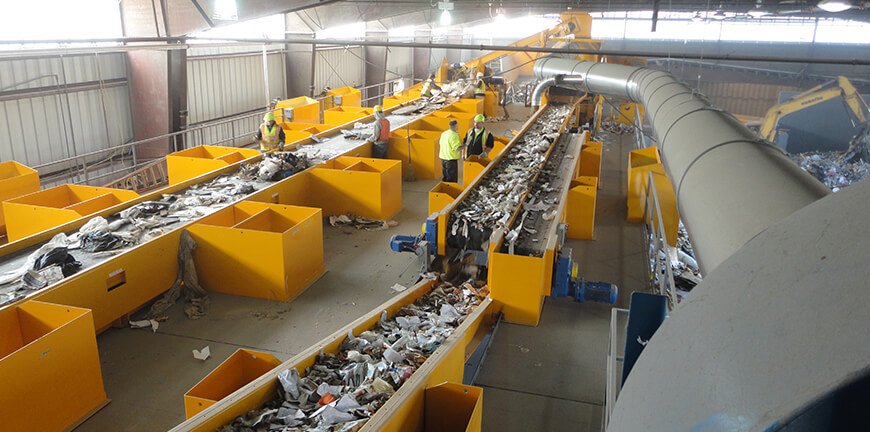Recycling is the processing of used materials into new products to avoid waste of valuable materials. The utilization of new raw materials, energy consumption, air pollution by incinerators, and water pollution by landfills is reduced. Recycling is a crucial constituent of current waste management.
What Is Construction Waste Recycling?

Construction waste recycling is the process of separating and recycling recoverable waste materials created during construction. Scraps of new materials that are not utilized, old materials, packaging, and debris all are essentially recoverable materials. Recycling reduces the issues of water and soil pollution by the waste generated from chemically treated wood or other harmful substances.

Recycling of construction and demolition materials produced at a construction location is increasingly significant. The environmental advantage of recycling can be considerable. A great deal of this energy savings result from reduced utilization of natural wealth, such as mining crushed stone or extraction, and the refining of petroleum.
In addition to saving energy, recycling keeps the materials away from landfills. In addition to the environmental advantage, recycling will also have monetary benefit. Recycling or using materials on site can decrease material transportation and removal expenses. The materials can be separated on site by being placed in boxes or piles. It is essential to keep the materials as uncontaminated as possible by keeping other waste out of the recycling piles.
Waste concrete can be ground for use as fill, and neat wood, drywall, and cardboard can be used at the site for soil improvement. Small portable grinders can be comparatively economical and secure to use at sites. Such equipment can be fastened to pickup trucks. Recycling that needs reprocessing is not generally feasible economically, unless a facility for using recycled materials is situated close to the source.
A huge amount of construction and demolition materials are discarded at construction and renovation sites. The materials that can be beneficially recycled into new products are:
Concrete: Concrete can be recycled for use by numerous applications that presently use crushed stone. There are several facilities for the recycling of concrete.
Asphalt Pavement: It is being recycled in large quantities by crushing and subsequently recycling back into asphalt. This process is carried out either at site, or at an asphalt plant. Large savings in energy are being achieved by asphalt recycling.
Clean, Untreated Wood: This category of wood can be re-milled, chipped, or ground to produce engineered boards and boiler fuel. Wood that is contaminated with wood preservatives or lead-based paint should be managed according to the required regulations.
Metals: Numerous metals of different types including copper, steel, and aluminum are found at sites and can be recycled. Recyclers that use these materials are easily accessible.
Gypsum: It can be removed in drywall and recycled for use at numerous places, like new drywall construction, the manufacture of cement, and for agricultural purposes. Drywall that is contaminated with lead-based paint should be cleaned before recycling.
Cost Savings Recycled Materials
Recycling of materials can save significant money for the state and other purchasers, generate additional trade prospects, save energy by performing recycling at site, and preserve thinning resources. According to the studies carried out, recycling is performed at a small scale that needs to be enhanced to obtain the advantages of recycling. For example, the recycling of asphalt is essential because the roads are being increasingly deteriorated due to the manifold increase in traffic load and volume, reduced funding, and the increased requirement for an efficient transportation system. To reiterate the cost reduction, a paving project of a 4-inch overlay by using conventional materials was estimated at $55,000. The same task could be completed at $32,000 through the use of recycled materials, resulting in a savings of $13,000. Similarly, there are substantial savings in other fields from the use of recycled materials.


